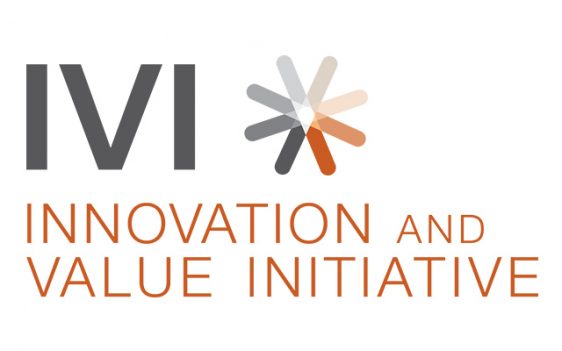IVI’s Executive Director Discusses Moving Beyond the Average in Value Assessment at Xtelligent Media’s Value Based Summit 2018
Boston, MA –- October 18, 2018 — Value Assessment 2.0 requires building assessment models that account for all of the factors that determine value instead of focusing only on cost and clinical benefits, said the executive director of the Innovation and Value Initiative (IVI) – a collaboration dedicated to advancing the science and improving the practice of value assessment in healthcare – during a panel discussion at today’s 3rd Annual Value-Based Care Summit.
Jennifer Bright, the executive director at IVI, participated on a panel entitled “Healthcare Quality Measurement,” which examined how healthcare stakeholders are looking at insights derived from measurement initiatives to support value-based care. Bright said that for the next-generation of value assessment tools to be effective they must account for the immense diversity among patients so local healthcare decision makers, from payers to employers, can examine the benefits, risks, and costs of therapies within a specific population.
“One of the fundamental mistakes we’re making in the march to value-based care is the assumption that value is one number measured with one approach. Value isn’t one-dimensional, and we shouldn’t measure it that way,” Bright said. “Relying solely on a population-wide estimate of cost effectiveness essentially assumes that all patients will respond similarly to the intervention or therapy, and we know that’s not the case. In the U.S., we need value assessment platforms that can account for relevant value factors – especially patient diversity – that go beyond population averages and support improved assessment tools that facilitate all decision makers’ ability to deliver the right therapy to the right patient.”
Bright stressed the importance of factoring patient perspectives, beyond clinical heterogeneity, directly into value calculations. When patient perspectives are hard-wired into value assessment tools, an understanding of what is most important to patients, including productivity, out-of-pocket spending, convenience, and the promise of hope, are considered. This gives healthcare decision makers – from clinical trial designers to employee benefit designers – better insight into factors affecting choice and adherence to treatment, which has an impact on health outcomes.
Essential to modernizing value assessment, Bright noted, is an open-source and collaborative environment for health economics method development and analysis. Bringing together the best concepts and the best practitioners of value assessment will accelerate improvement of methods that can optimize newer sources of data and offer insights relevant to the complex decisions confronting all actors in healthcare today, she predicted.
IVI seeks to work with all value assessment stakeholders – patients, employers, payers, PBMs, providers and innovators – to understand their assessment needs and data sources and foster projects that test IVI models’ ability to answer questions of importance to them.
Bright participated on the panel with George Dealy, Vice President of Healthcare Applications at Dimensional Insight, and Misty Roberts, MSN, Clinical Quality Officer, Office of the CMO at Humana.
###
Media Contact:
Eric Hoffman
Schmidt Public Affairs
Telephone: (202) 285-0810
E-Mail: ehoffman@schmidtpa.com
Follow IVI on Twitter: @IVI_health
Follow IVI on Facebook: @innovationandvalueinitiative
Follow IVI on LinkedIn: Innovation and Value Initiative
About the Innovation and Value Initiative
The Innovation and Value Initiative (IVI) is a collaboration among thought leaders in academia, patient advocacy organizations, payers, life sciences companies, providers, delivery systems, and other organizations. It was created to raise the level of discussion regarding value in health care and find common ground in the approach to measuring and rewarding value. IVI’s Strategic Advisory Panel includes experienced leaders from across the health care industry. Their role is to provide advice and ensure the credibility and rigor in the research and policy products and to ensure all parties have a voice in IVI activities.


